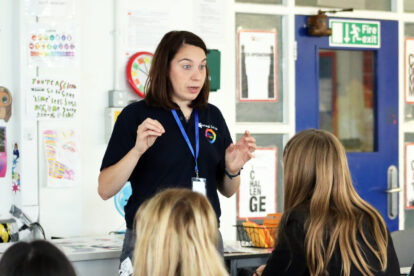Suffolk Mind issues advice for parents and carers to help ease students’ exam stress
As young people across the county prepare for their exams, we have issued some advice to parents and carers to help ease any stress they may be feeling.
It can be a very anxious time for students, and it is often difficult for parents and carers to know what to do to help and support them through it.
Our Children, Families & Young People’s (CFYP) Training & Content Manager Louise Harris said: “This time of year can create additional stress for students and their families, but working together to find solutions can help to create a calmer atmosphere.
“Parents and carers can help by letting their young people know that it is normal to feel a level of additional stress during exam time, as it comes with feelings of wanting to do well.”
Here are some helpful tips for parents and carers:
Be flexible
First, be flexible with your expectations on their time. Young people preparing for GCSE, T-Level and A Levels are often purely focused on their exams, so may slip on daily chores like cleaning their room.
When they are revising, the last thing they need is more stress added to their lives. Remember, exam season will be over soon – the hoover can wait!
Avoid criticism and minimisation
As an adult, it can be easy to look back at your own exam experiences with the benefit of hindsight. After years working a career, some can look back and think ‘what was I worrying about’.
But exam stress is real and it doesn’t help to minimise students’ experiences. Keep in mind this is an important time in their lives and let them know you’re there if they need to talk.
The importance of sleep
We all have physical and emotional needs we must meet to keep well – and one of the most important is Sleep.
It is easy for students to want to stay up late cramming, reading that extra chapter or studying that extra topic before bed.
However, sleep is crucial to our mental wellbeing, giving our brain time to process the day’s emotions, to heal and recuperate.
So, if they have been up late studying, don’t be in a rush to wake them. Allow them to catch an extra few winks – they may need it.
Balance is best
As a parent, you naturally want the best for your child. But parents can often fall into the trap of thinking students need to have their head in the books all the time.
It’s better to find a healthy balance. A few hours meeting up with friends and having some fun while revising can do them a world of good, allowing them to return to their studies refreshed and refocused.
Louise added: “Everybody works well in different conditions: some need a time limit, others need lots of time and space. Some like to revise in quiet, others prefer low background noise.
“By making an environment where it is possible to talk about things, it can make it easier for young people to share their feelings and ask for help if they need it.
“On the day of the exam, if your student feels levels of stress rising, it can be helpful to do 7/11 breathing, which can calm your brain and allow you to have better access to your learned knowledge.”
We have created resources to equip students of all ages with the tools to take care of their wellbeing.















